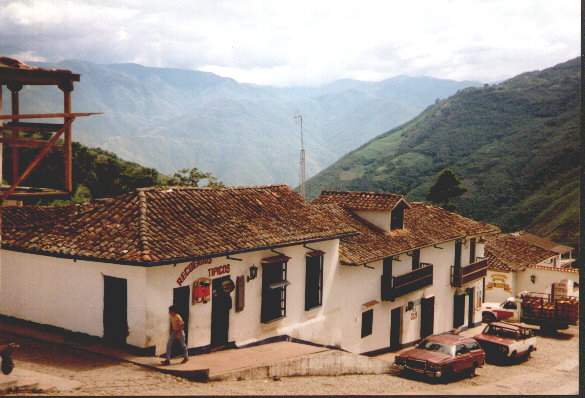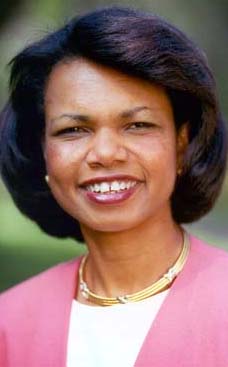March 2, 2006: Headlines: COS - Venezuela: Cuba: Spain Herald: Carlos Alberto Montaner says Americans conceived the Alliance for Progress and the Peace Corps to counteract Moscow's influence. But those incentives to stimulate international solidarity no longer exist.
Peace Corps Online:
Directory:
Venezuela:
Peace Corps Venezuela :
The Peace Corps in Venezuela:
March 2, 2006: Headlines: COS - Venezuela: Cuba: Spain Herald: Carlos Alberto Montaner says Americans conceived the Alliance for Progress and the Peace Corps to counteract Moscow's influence. But those incentives to stimulate international solidarity no longer exist.
Carlos Alberto Montaner says Americans conceived the Alliance for Progress and the Peace Corps to counteract Moscow's influence. But those incentives to stimulate international solidarity no longer exist.

Objectively speaking, all Washington sees south of the Rio Grande is a bunch of backward countries that sell raw materials or farm products but have an ever-decreasing share of international trade and are practically nonexistent in the scientific, academic, military and financial fields. They -- we -- count for little in the big questions being debated worldwide.
Carlos Alberto Montaner says Americans conceived the Alliance for Progress and the Peace Corps to counteract Moscow's influence. But those incentives to stimulate international solidarity no longer exist.
Region Is Irrelevant To The U.S.
Carlos Alberto Montaner
«The truth is that nobody pays attention to Chávez. Why? Because Chávez, Castro and Morales -- despite the folksy, verbal pyrotechnics they like to flash -- are irrelevant.»
Venezuelan President Hugo Chávez threatens President Bush and insults Condoleezza Rice and nobody in Washington pays any attention. Chávez meets with his ''brother,'' Evo Morales, or with his spiritual father, Fidel Castro, to plan the conquest of the planet or the galaxy beginning with Latin America (if they have enough Leninist fervor that day), and The New York Times publishes a four-line item on Page 48, next to a story about a guy who swears that he was kidnapped by Martians who forced him to drink whiskey all weekend long.
The truth is that nobody pays attention to Chávez. Why? The answer came from political scientist George Friedman in a recent column: because Chávez, Castro and Morales -- despite the folksy, verbal pyrotechnics they like to flash -- are irrelevant.
True, Chávez sells 16 percent of the crude oil imported by the United States, but -- his bark notwithstanding -- he has no better customers for his merchandise than the Americans. In turn, the United States sees an oil-producing country with which it can do business, regardless of the hostility and the verbal abuse emanating from the man who rules and manages it.
After all, what the United States wants from Venezuela is not the courtesy of its politicians but the fuel it can buy there.
Friedman goes beyond Venezuela in his cold analysis of the relations between the U.S. and South America, however. Seen from Washington's perspective, the whole region is irrelevant, he writes, except for the immigration problem, which is a matter that affects principally its links with Mexico.
Objectively speaking, all Washington sees south of the Rio Grande is a bunch of backward countries that sell raw materials or farm products but have an ever-decreasing share of international trade and are practically nonexistent in the scientific, academic, military and financial fields. They -- we -- count for little in the big questions being debated worldwide.
[Excerpt]
During the Cold War, when the game was zero-sum and every country that moved into the Soviet sphere meant a loss for the West, the Americans conceived the Alliance for Progress and the Peace Corps to counteract Moscow's influence. But those incentives to stimulate international solidarity no longer exist. Prevailing in the world today is the absolute freedom to leap into the abyss.
©FIRMAPRESS
Carlos Alberto Montanerís syndicated column appears in dozens of newspapers in the United States, Latin America and Spain.
When this story was posted in March 2006, this was on the front page of PCOL:





Peace Corps Online The Independent News Forum serving Returned Peace Corps Volunteers
 | March 1, 1961: Keeping Kennedy's Promise
On March 1, 1961, President John F. Kennedy issues Executive Order #10924, establishing the Peace Corps as a new agency: "Life in the Peace Corps will not be easy. There will be no salary and allowances will be at a level sufficient only to maintain health and meet basic needs. Men and women will be expected to work and live alongside the nationals of the country in which they are stationed--doing the same work, eating the same food, talking the same language. But if the life will not be easy, it will be rich and satisfying. For every young American who participates in the Peace Corps--who works in a foreign land--will know that he or she is sharing in the great common task of bringing to man that decent way of life which is the foundation of freedom and a condition of peace. " |
 | The Peace Corps Library
The Peace Corps Library is now available online with over 40,000 index entries in 500 categories. Looking for a Returned Volunteer? Check our RPCV Directory. New: Sign up to receive PCOL Magazine, our free Monthly Magazine by email. Like to keep up with Peace Corps news as it happens? Sign up to recieve a daily summary of Peace Corps stories from around the world. |
 | Paid Vacations in the Third World?
Retired diplomat Peter Rice has written a letter to the Wall Street Journal stating that Peace Corps "is really just a U.S. government program for paid vacations in the Third World." Director Vasquez has responded that "the small stipend volunteers receive during their two years of service is more than returned in the understanding fostered in communities throughout the world and here at home." What do RPCVs think? |
 | RPCV admits to abuse while in Peace Corps
Timothy Ronald Obert has pleaded guilty to sexually abusing a minor in Costa Rica while serving there as a Peace Corps volunteer. "The Peace Corps has a zero tolerance policy for misconduct that violates the law or standards of conduct established by the Peace Corps," said Peace Corps Director Gaddi H. Vasquez. Could inadequate screening have been partly to blame? Mr. Obert's resume, which he had submitted to the Peace Corps in support of his application to become a Peace Corps Volunteer, showed that he had repeatedly sought and obtained positions working with underprivileged children. Read what RPCVs have to say about this case. |
 | Why blurring the lines puts PCVs in danger
When the National Call to Service legislation was amended to include Peace Corps in December of 2002, this country had not yet invaded Iraq and was not in prolonged military engagement in the Middle East, as it is now. Read the story of how one volunteer spent three years in captivity from 1976 to 1980 as the hostage of a insurrection group in Colombia in Joanne Marie Roll's op-ed on why this legislation may put soldier/PCVs in the same kind of danger. Latest: Read the ongoing dialog on the subject. |
 | PC establishes awards for top Volunteers
Gaddi H. Vasquez has established the Kennedy Service Awards to honor the hard work and service of two current Peace Corps Volunteers, two returned Peace Corps Volunteers, and two Peace Corps staff members. The award to currently serving volunteers will be based on a demonstration of impact, sustainability, creativity, and catalytic effect. Submit your nominations by December 9. |
 | Friends of the Peace Corps 170,000 strong
170,000 is a very special number for the RPCV community - it's the number of Volunteers who have served in the Peace Corps since 1961. It's also a number that is very special to us because March is the first month since our founding in January, 2001 that our readership has exceeded 170,000. And while we know that not everyone who comes to this site is an RPCV, they are all "Friends of the Peace Corps." Thanks everybody for making PCOL your source of news for the Returned Volunteer community. |
Read the stories and leave your comments.

Some postings on Peace Corps Online are provided to the individual members of this group without permission of the copyright owner for the non-profit purposes of criticism, comment, education, scholarship, and research under the "Fair Use" provisions of U.S. Government copyright laws and they may not be distributed further without permission of the copyright owner. Peace Corps Online does not vouch for the accuracy of the content of the postings, which is the sole responsibility of the copyright holder.
Story Source: Spain Herald
This story has been posted in the following forums: : Headlines; COS - Venezuela; Cuba
PCOL31849
62















